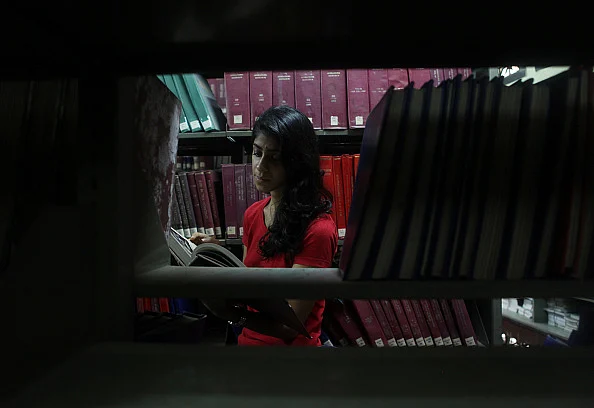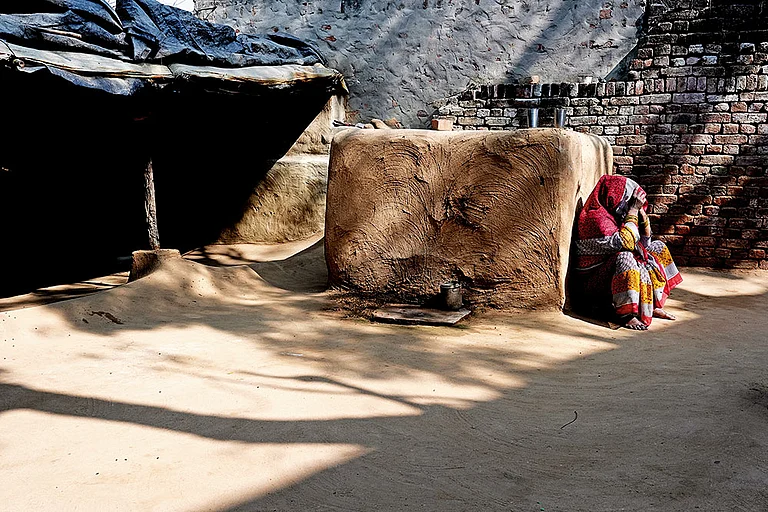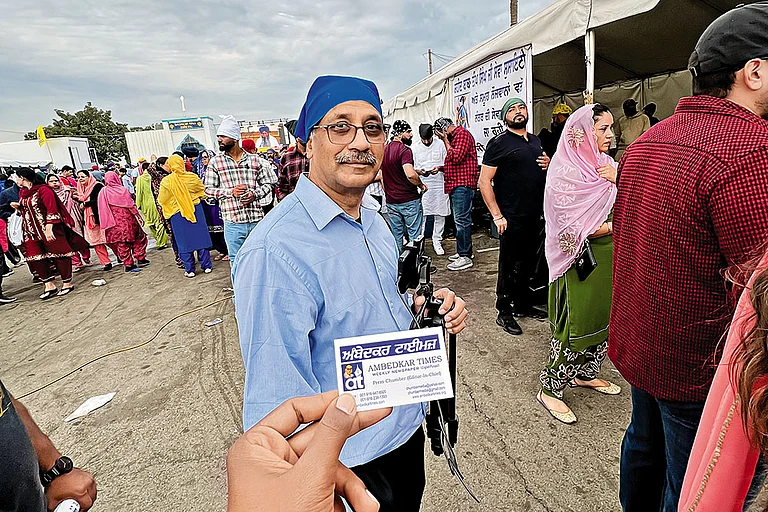Stacks of books - neatly kept on a table - a small statue of Babasaheb Ambedkar, and blue windows letting the light pass through it - may seem to be a residential flat at a first glance. But this place, at Omkarnagar in Nagpur is soon going to be a space for reading, discussion, debate and emancipation. Situated around 7 kms away from the head office of RSS in Nagpur, the ‘Library of Emancipation’ is Dalit writer and poet Yogesh Maitreya’s dream project- a place where people from marginalised communities can come and enjoy reading.
Maitreya, who founded Panther’s Paw publication in 2016 that publishes books by Dalit-Bahujan authors, is using his office space to turn it into a library. "The idea of library of emancipation came to me when we were setting up an office space for Panther’s Paw in 2021 right after the second week of the pandemic,” says the scholar.
The major thought behind setting up the library in Nagpur, however, came from his own childhood experience. “I was reflecting on my own history and the history of the city of Nagpur where there is hardly any library. There is no space for students or anybody who does not have the financial means to buy books but who wants to cultivate their own mind by reading about it,” he adds.

Apart from 1970s and 80s when Dalits in the city tried to reclaim their histories through books, there have hardly been any such effort since. “The city is someway or other now engulfed in consumption,” says Maitreya. Every year during Vijaya Dashami, Dalits from across the state participate in huge numbers to celebrate the anniversary of Babasaheb. And the words of the father of the constitution, ‘educate, agitate, organise’ resonate through the efforts of Panther’s Paw.
Interestingly, Maitreya in his childhood rarely had any space where he could go and read. “I never had such space where I could read books. The life now has become virtual but the significance of reading books hasn’t reduced,” he notes. This indominable desire to create a space where people would come and read had made him think through such a project.
In early February, they started asking for contribution from people to build this library and had set a target of Rs. 3,25,000. They announced the project on their social media page and informed that they would sell four books titled A Rebellious Cobbler, Out of Coverage Area, Outside the Fold Singing and Thinking Anticaste at Rs. 2096 to gather the budget.
Notably, in a few weeks, they managed to gather the required amount and the library is about to start its operation in a few weeks, Maitreya notes. “At least 20-30 people will be able sit and read here. We have been arranging small talks and readings as well. We arranged a session recently to read a chapter from Bell Hooks’ The will to change. So, gradually it will also become a space for discussions and debate,” he adds.

There will be no membership charge for the library. Anybody who wants to donate books can donate it to their office address. “Everyone has one book in their life that made impact and changed something in them. People across class, caste and gender background can donate. We are keeping books on poetry, anthropology, literature, autobiography, feminism, anti-caste literature and history,” says Maitreya.
Coming at a time when the percentage of Dalit publishers and authors was rare in comparison to the upper castes, Panther’s Paw tried to bring a positive change. In 2017, a study showed that among 90,000 books published in a year from India, only 150 or less than 0.5 per cent are written by Dalit authors.
To ensure that publishing is inclusive, Maitreya wants it to be a ‘public act’ where people are engaged beyond their capacity as reader. Library of Emancipation also holds similar essence. But why did he choose the word emancipation?
“What is emancipatory action for you depends on you but the books create stimulus. During Ambedkar’s life, people who were around him took his message to the corners of the society but after his mahaparinirvan, it is his books through which we can know him. Thus, reading becomes liberating and emancipatory,” says the author of Flowers on the grave of caste. The library will start its operation in a few days.



























